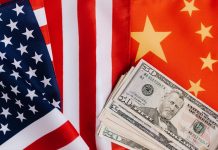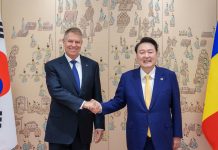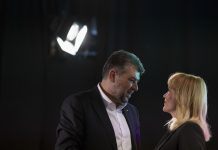If political relations are cool, and trade between Romania and Russia has dwindled to a trickle, there’s always Tchaikovsky.
The ‘Days of Russian Culture’ now in its ninth edition began this week in Romania featuring a series of Russian artists, concerts and exhibitions to showcase another side of Russia.
A classical concert called “Russia, love without frontiers” sponsored by the Russian embassy and the Russian Center for Science and Arts, had young Russian pianists and violinists playing Tchaikovsky and Rachmaninoff to Romanian audiences.
It’s part of a broad Russian-style charm offensive that Moscow is hoping will offset traditional mistrust between Russia and its East European neighbour.
After he was elected president in 2012, Vladimir Putin made so-called ‘soft power’ an integral feature of the drive to restore Russia’s great power status, investing heavily to promote a positive image of the country abroad.
Putin observed in 2012 that soft power “‘implies a matrix of tools ad methods to reach foreign policy goals without the use of arms but by exerting information and other levers of influence.”
Romania has a historic anti-Russian outlook due to the theft of its national treasure which was sent to Moscow for safekeeping during World War I and never returned and then the loss of Moldova to the Soviet Union during World War II.
Then as World War II ended, the Soviet troops entered Bucharest and installed a puppet government under Petru Groza in Bucharest. The communist regime lasted more than 40 years until the overthrow and execution of Communist leader Nicolae Ceausescu during the 1989 uprising.
While historical attitudes in Romania present difficulties for Russia, the two countries have some things in common such as the Orthodox Church, and Russia has appealed to some Romanians positioning itself as a defender of Christian and traditional values, and the West as decadent and godless.
It’s worth noting that Moscow enjoys better relations with another Romanian-speaking country, the former Soviet republic Moldova where President Igor Dodon advocates for better relations with Russia.
But Romania is more complicated. The Kremlin sees Romania as a NATO outpost and “a clear threat” due to it hosting elements of a U.S. anti-missile shield. In turn, Romanians are generally mistrustful of Russia,
A recent survey conducted by the Avangarde group showed that Romania country remains pro-US and sees Russia as the greatest enemy of its national interests.
While 47% of respondents said relations with Russia should be improved with 29% believing they are already good enough, one-quarter said Romania should move away from Russia.
Strikingly, the survey revealed that 31% see Russia as the biggest enemy of Romania’s interests. This was the highest share reported for a country, with the next on the list being Hungary – with 9% of respondents seeing Hungary as the greatest enemy of Romania’s national interest.
The phrase “soft power” was first coined by American political scientist Joseph Nye in the late 1980s. The U.S., Britain, Germany and France and others all use “soft power” as part of their foreign diplomacy, including in Romania.
While Nye viewed attractiveness was the key element of the notion of soft power, a view shared by Western nations, Putin views it as part of several ‘levers on influence.’
Andreia Soares e Castro, a Portuguese Professor of International Relations at the School of Social and Political Sciences who has written on the topic, says Russia is less effective at using “soft power” as it uses “government as the main instrument of soft power” and lacks the non-governmental organizations “that generate soft power success.”
So while audiences in Romania may be delighted by Russian artists playing Tchaikovsky or Rachmaninoff, it doesn’t mean they will suddenly consider Russia to be Romania’s new best friend.


















